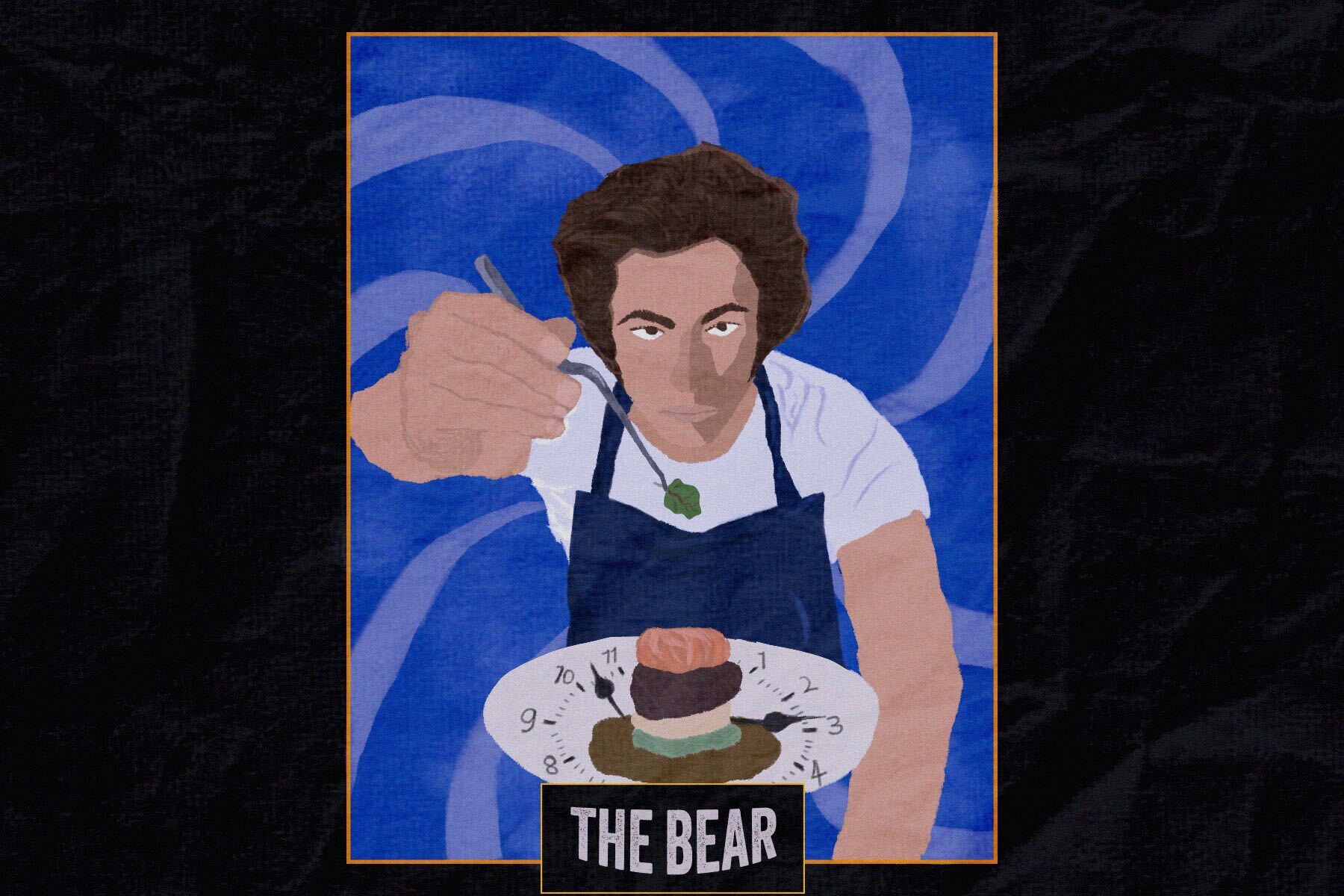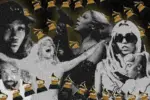“The Bear” tells the story of a chef who desperately tries to keep his late brother’s restaurant afloat as the restaurant fights to bring him down with it. Carmy Berzatto returns to Chicago to take over The Original Beef of Chicagoland, the restaurant Michael left to him after dying by suicide. “The Bear,” is a poignant story about loss and change, commandeered by a talented ensemble and brilliant writers. The Hulu series’ overwhelmingly positive reception can be largely attributed to the ingenuity of the script. The writers use ordinary people and everyday problems to communicate overarching ideas about humanity.
Novelist Richard Price proclaims, “You don’t write about the horrors of war. No. You write about a kid’s burnt socks lying in the road.” The way “The Bear” navigates some of its most important motifs — grief, addiction, suicide — is a testament to the truth of Price’s statement. On the show, big ideas are not highlighted by big moments. The heaviness of loss is not shown through frequent paroxysms of sorrow. Characters hardly relay heartfelt confessions of love that they can no longer give to Michael. The emotions that permeate each scene are amplified by the writers’ choice to represent these mighty moments with smaller ones. A power struggle becomes a pack of cigarettes. Fear of change becomes spaghetti. A brother becomes a building.
Cigarettes make their appearance in the second episode, when a health inspector finds a pack of Sapphires by the stove and awards The Beef a “C.” A “C” from the Department of Public Health is a failing score, a death sentence in the food industry. An already high-strung Carmy blames Richie, a fellow smoker and Michael’s best friend. The two men nearly come to blows as they argue about who the cigarettes belong to. They speak of cigarettes, but fight is over who Michael loved more. They are both afraid that they were not the one. At The Beef, where fear and sorrow are veiled behind aggression, the men grapple with their jealousy of each other by vying for power — the best friend and the brother, begging to be the dead man’s favorite. At the end of the episode, Carmy steps outside for a smoke break and realizes his pockets are empty — the cigarettes were his own. He does not tell Richie. Instead, the two men continue rotting in silence, alone in a crowded kitchen, suffocated by guilt. Contained in the narrow walls of the kitchen, grief festers, turning sour as secondhand smoke.
When spaghetti is mentioned in “The Bear,” the characters are rarely discussing pasta. At the beginning of the season, Carmy calls for the removal of the fan-favorite spaghetti dish from the menu, claiming that it ruins their sandwich offerings. Still sporting his holier-than-thou attitude from years spent working in Michelin Star restaurants, Carmy has difficulty accepting the spaghetti as vital to The Beef’s history. Richie meets Carmy’s anti-spaghetti tirade with indignation. To Richie, Carmy’s interposition as the new owner jeopardizes Michael’s legacy. To change what Michael left behind would be to lose a piece of him. Ultimately, Carmy removes the pasta from the menu and Richie relinquishes his idea that breaking tradition is an assault on Michael’s memory. Carmy’s inevitable humbling comes in the season finale when he cooks the spaghetti as an homage to his brother and discovers cash hidden in the unused tomato jars. Carmy’s religious adherence to lessons he learned as a high-end chef breaks as he faces the reality that open-mindedness just offered him $300,000, drenched in San Marzano tomatoes.
The Beef serves as a warped surrogate for Michael. Since the characters can no longer love Michael himself, they love what he left behind. The restaurant is a lousy substitute, a terrycloth mother for grief, but nonetheless a relic from a person the crew will never get back. No longer is The Beef’s imminent bankruptcy strictly a financial matter. Carmy willingly faces Odyssean trials and tribulations to keep The Beef afloat in an effort to preserve the rest of his brother. To allow The Beef to drown would be to irrevocably deplete the finite amount of Michael that is left. This tiny restaurant in Chicago comes to house the grief, pain and aimless love of a small, lost, bereaved community.
After seven episodes of building walls and locking doors, the season finale rewards viewers with a rare moment of vulnerability from Carmy. At an Alcoholics Anonymous meeting, Carmy speaks about his fraught relationship with Michael. Despite Michael’s substance abuse issues and Carmy’s unrelenting pride, The admiration and unbounded love that remains is palpable. Carmy describes one of his brother’s odd talent: “He could just, he could walk into a room and he could take the temperature of it instantly. You know, he could just, he could dial it.” Carmy’s voice breaks and his countenance crumbles as he recounts this observation, the kind of behavior only a loved one would know.
The speech continues to devastate as Carmy describes what Michael was to him: an opposite. Michael’s vivacious nature balanced Carmy’s demure presence. Confidence countered fear. Virginia Woolf describes the loss of that complementary person best when she writes, “My own infirmities oppress me. There is no longer him to oppose them.” The entire season Carmy grapples with the words to describe the magnitude of his loss. The culmination of that struggle is refreshingly real and startlingly honest. The unspoken is finally spoken.
“The Bear” has suffered no shortage of praise, especially since its recently released second season. According to lead actor Jeremy Allen White, who plays Carmy, season two will give the protagonist opportunities he’s been seeking for years, and pose questions like, “Is that enough? Is that going to make him happy?”
The 10-episode second season is already available on Hulu, and there is no time to waste seeking answers.
















